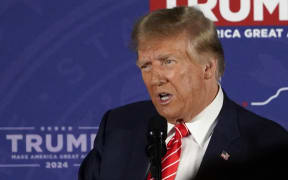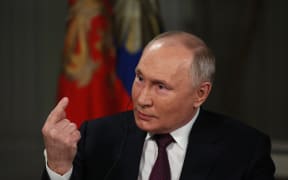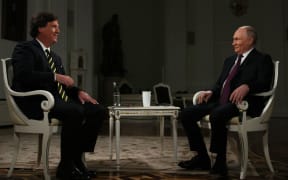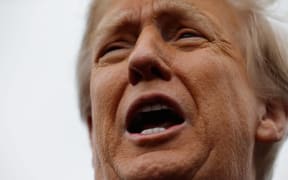By Frank Gardner, BBC Security Correspondent
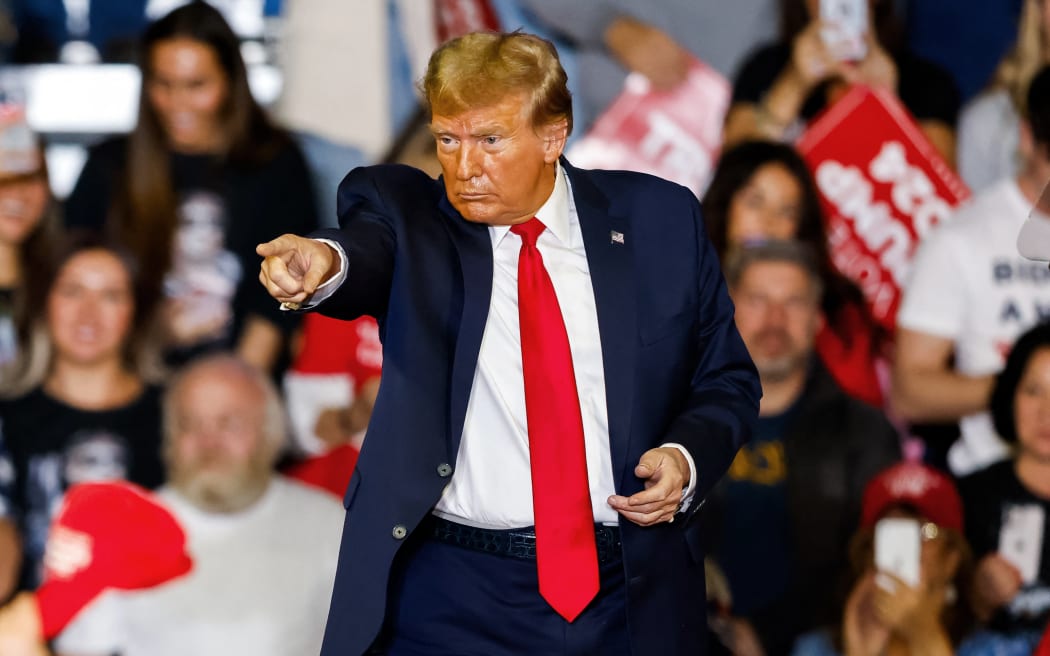
Republican party favourite and former US President Donald Trump's comments at a South Carolina rally over the weekend have alarmed NATO leaders. Photo: Julia Nikhinson / AFP
Analysis - And so it begins. Nine months still to go before the next US presidential election and already the Republican party favourite and former President Donald Trump is sending eyebrows and blood pressure skywards in NATO capitals with his provocative statements.
And yet they will delight many of his supporters.
Suggesting at a rally in South Carolina that he would "encourage" aggressors (for example Russia) "to do whatever the hell they want" with NATO countries that fail to pay their dues has prompted an immediate condemnation from the White House. A spokesman called the comment "appalling and unhinged", saying it was "encouraging invasions of our closest allies by murderous regimes".
NATO Secretary-general Jens Stoltenberg has also responded forcefully, saying: "Any suggestion that allies will not defend each other undermines all of our security, including that of the US, and puts American and European soldiers at increased risk."
Did Trump mean what he said? Probably not. This is typical Trump fare. Say something provocative, grab some headlines, outrage your critics and thrill your fans.
Yet ironically, there is a grudging gratitude in some quarters of NATO for Trump's threats when he was in the White House. Back in 2018, President Trump was so angered by the failure of several European nations to fulfil their agreed quota of spending 2 percent of GDP on defence that he threatened to pull the US out of the alliance altogether.
Military chiefs throughout NATO were aghast. If a US president ever went through with such a threat, abandoning Europe to fend for itself, it would so severely undermine the alliance that it would cease to exist in its present form.
But the shockwaves it sent, coupled with Russia's 2022 full-scale invasion of Ukraine, have had the effect of prompting some, notably Germany, to promise to raise their defence spending accordingly.
For Trump supporters, and others too, his gripe about other nations not paying their way resonates strongly. According to statistics published by Nato themselves, US military spending in 2023 amounted to 3.49 percent of GDP. The UK spent 2.07 percent, but Germany, France, Italy and Spain all came in below the agreed 2 percent threshold.
Tellingly, the countries closest to Russia's borders spent the most in percentage terms. There are voices in the US Republican party saying, "Why should we, America, carry the burden of defending Europe when it won't pay for its own defence?".
Trump's throwaway comments still constitute dangerous talk at a dangerous time, for NATO and for the Western world. Ukraine's summer 2023 offensive has failed.
Russian forces remain firmly in place in the areas they have occupied and are slowly pushing back the Ukrainians in the Donbas. Moscow has moved its economy on to a war footing, allocating about 40 percent of national income to defence, churning out low-quality weaponry in vast numbers in the hopes of overwhelming Ukraine's defences.
Poland and the Baltic states are convinced that once President Putin has achieved his war aims in Ukraine, then Russia will rebuild its army and make a move on their countries, perhaps as soon as within three years from now.
Much faith has been placed in the long-standing deterrent value of something called Article 5. This is the part of NATO's constitution that stipulates that an attack on any member state calls for the collective defence by all.
In other words, should Moscow decide to send tanks across its borders into, say, Estonia, then this would trigger a massive response by NATO. Under a Trump presidency, that certainty would not look nearly so certain.
And thereby lies the danger in Trump's comments. If a future aggressor, be it Vladimir Putin in Europe or Xi Jinping in the South China Sea, begins to doubt Washington's commitment to defend its allies, then it risks a massive miscalculation. You don't have to look far for an example. Two years ago, President Putin's intelligence people told him the West would sit on its hands if he invaded Ukraine.
They were wrong - and a catastrophic war has ensued.
* This article was first published by BBC.
